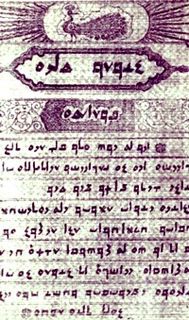 W
WThe Kurdish languages constitute a dialect continuum, belonging to the Iranian language family, spoken by Kurds in the geo-cultural region of Kurdistan and the Kurdish diaspora. The three Kurdish languages are Northern Kurdish, Central Kurdish, and Southern Kurdish. A separate group of non-Kurdish Northwestern Iranian languages, the Zaza–Gorani languages, are also spoken by several million ethnic Kurds. Studies as of 2009 estimate between 8 and 20 million native Kurdish speakers in Turkey. The majority of the Kurds speak Kurmanji. Most Kurdish texts are written in Kurmanji and Sorani. Kurmanji is written in the Hawar alphabet, a derivation of the Latin script, and Sorani is written in the Sorani alphabet, a derivation of Arabic script.
 W
WArdalani is a dialect of Kurdish of Sorani, which is common in the Ardalan region of Kurdistan province. Ardalani is dialect cities and villages of Sanandaj, Kamyaran, Divandarreh, Dehgolan (Lilaxi) and Ravansar in Kermanshah province and part of Marivan and Saqez (Tilkui) and Bijar villages. Kurdish is a collection of special dialects and dialects that are part of the new Northwestern branch of Iranian languages. Kurdish with its diverse dialects is a collection of ancient languages and varieties of people living in the Zagros area before history.
 W
WIbrahim Amin Baldar (1920–1998) was born in 1920 in the city of Sulaymaniyah. He is the author to the first official Kurdish language primer Alfubei Nwe published in 1951.
 W
WDengbêj is a Kurdish music genre and/or a singer of the music genre Dengbêj. Dengbêjs are singing storytellers. There have been many terms to describe Dengbêjs throughout history, but today Dengbêj is the best known, and also several singing storytellers use Dengbêj as part of their (artistic) name. Dengbêjs are viewed as a way to transmit the traditions of their Kurdish ancestors in times as it was not possible to publish in Kurdish or about Kurdish history. Since there don't exist many documents about certain Kurdish events, today there exist attempts to analyze them through the songs of the Dengbêjs. They sing about the Kurdish geography, history, recent events, but also lullabies and love songs The Kilam is a speciality of the Dengbêjs, where they just let the out what moves them, and do not so much watch to make a pause after the end of a phrase. If they sing in the style of a stran, the song is more melodic and rhythmic, popular and love songs sung at weddings are sung in stran style. They sing mostly without instruments accompanying them. Traditionally Dengbêjs need to first learn the Dengbêj songs from the ancestors before performing their own songs. Well known Dengbêjs are Karapetê Xaço, Evdalê Zeynikî and Sakîro. In the 1980s the Dengbêjs were persecuted for singing in Kurdish as it was forbidden in Turkey to sing in Kurdish language. In 1991, Turgut Özal achieved that the use of the Kurdish language became legal except for broadcast, publications, education and in politics. Therefore, the Dengbêjs were again able to perform with more freedom. From 1994 onwards the Dengbêjs were supported by Kurdish politicians to attend festivals and TV shows out of Turkey and from the 2000s also inside Turkey. Therefore, the Dengbêj music became politicized and as a sign of Kurdishness, which confronted the Turkish nationalism.
 W
WThe Kurdish Academy is an institution mandated by the Kurdistan Regional Government, dealing with all issues related to Kurdish language within Iraq.
 W
WThe Kurdish languages are written in either of two alphabets: a Latin alphabet introduced by Celadet Alî Bedirxan in 1932: Bedirxan alphabet or Hawar alphabet and a Persian alphabet-based Central Kurdish alphabet. The Kurdistan Region has agreed upon a standard for Central Kurdish, implemented in Unicode for computation purposes.
 W
WKurdish literature is literature written in the Kurdish languages. Literary Kurdish works have been written in each of the four main languages: Zaza, Gorani, Kurmanji and Sorani. Ali Hariri (1009-1079) is one of the first well-known poets who wrote in Kurdish. He was from the Hakkari region.
 W
WKurmanji, also termed Northern Kurdish, is the northern dialect of the Kurdish languages, spoken predominantly in southeast Turkey, northwest and northeast Iran, northern Iraq, northern Syria and the Caucasus and Khorasan regions. It is the most widely spoken form of Kurdish, and is a native language to some non-Kurdish minorities in Kurdistan as well, including Armenians, Chechens, Circassians, and Bulgarians.
 W
WSorani (Kurdish: سۆرانی ,Soranî), also called Central Kurdish, is a dialect or a language of the Kurdish languages that is spoken in Iraq, mainly in Iraqi Kurdistan, as well as the Kurdistan Province, Kermanshah Province, and West Azerbaijan Province of western Iran. Sorani is one of the two official languages of Iraq, along with Arabic, and is in political documents simply referred to as "Kurdish".
 W
WSouthern Kurdish, also known as Kurdiy xwarîn is a Kurdish dialect predominantly spoken in Eastern Iraq and Western Iran. In Iran, it is spoken in the provinces of Kermanshah and Ilam. In Iraq, it is spoken in the region of Khanaqin, all the way to Mandali. It is also the dialect of the populous Kurdish Kakayî tribes near Kirkuk and most Yarsani Kurds in Kermanshah Province. There are also populous diasporas of Southern Kurdish-speakers found in the Alburz mountains.
 W
WThe Yazidi Book of Revelation is one of two books on the Yazidi religion written in the style of a holy book in the Kurmanji dialect of Kurdish, the other being the Yazidi Black Book. It is claimed that the original text of the Book of Revelation is kept in the Yazidi village of Ba'idn and the original text of the Yazidi Black Book is kept in the village of Qasr 'tzz at-Din.